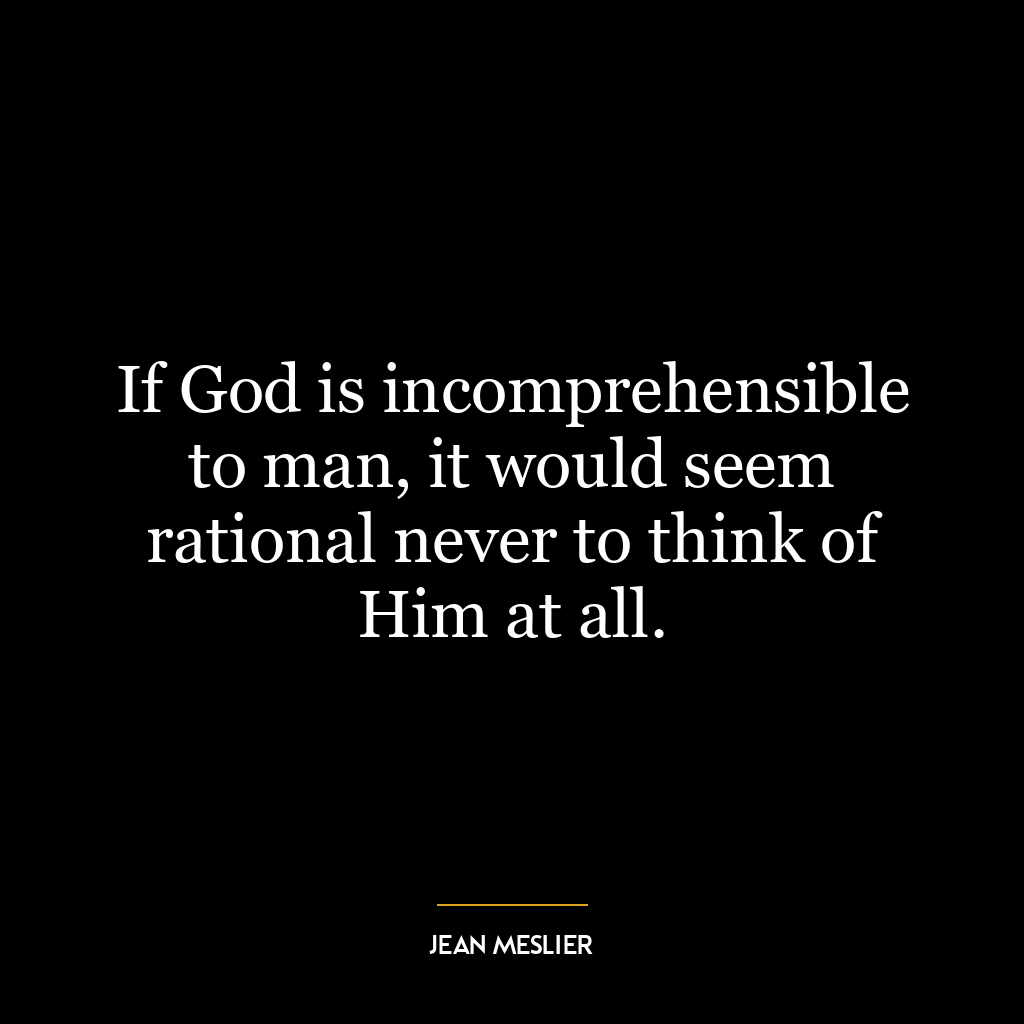This quote encapsulates the idea that prayer is not just a form of worship or request for divine intervention, but also an act of surrender and invitation. It suggests that when we pray, we are creating a spiritual opening or doorway through which God can enter our lives to interact with our problems and challenges. This implies that prayer isn’t simply about asking God to solve our problems, but rather inviting Him into the situation so He can work on it in His own way.
The essence of this statement lies in acknowledging the power beyond ourselves. It’s about recognizing that there are forces greater than us – in this case, God – who can provide solutions and pathways we may not be able to see or create on our own.
In terms of personal development, this concept encourages humility and acceptance – humility in understanding that we don’t have all the answers and acceptance in allowing a higher power to guide us through life’s complexities. This doesn’t mean one should abdicate responsibility for their actions or decisions; rather it’s about co-creating solutions with God as a partner.
In today’s world where individuals often feel overwhelmed by numerous challenges such as health crises, social inequality, economic instability among others; this idea could bring comfort and hope. By praying regularly (regardless of religious affiliation), people invite divine intervention into these issues thereby fostering resilience during tough times.
Moreover, if applied broadly across societies grappling with divisive issues like racism or political polarization; prayer could serve as a unifying force encouraging empathy and understanding among diverse groups. By collectively inviting God into these complex situations via prayer; societies might find new ways forward guided by principles of love, compassion and justice inherent to most faith traditions.








